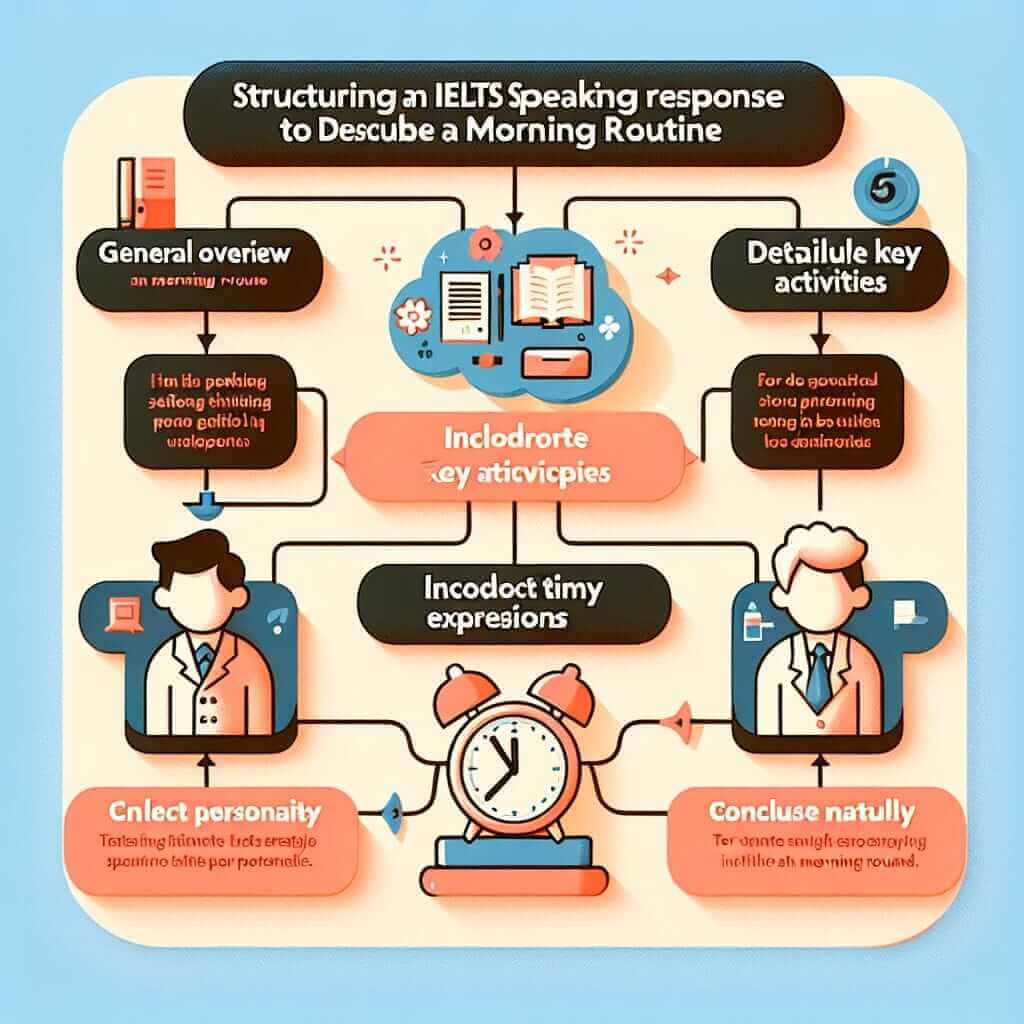As an IELTS instructor with over 20 years of experience, I’ve encountered countless students grappling with the seemingly simple yet surprisingly tricky question: “What is your morning routine?”. This question, a staple in IELTS Speaking Part 1, often throws test-takers off guard, leading to generic responses and missed opportunities to showcase their language skills.
This comprehensive guide will equip you with the knowledge and strategies to confidently tackle “What is Your Morning Routine” and similar questions, boosting your IELTS Speaking score.
Why is “Morning Routine” Important in IELTS Speaking?
The IELTS Speaking test assesses your ability to communicate effectively in English. While it might seem like a simple query about your day, the “morning routine” question serves several key purposes:
- Testing Fluency and Coherence: It evaluates how well you can organize your thoughts and deliver a smooth, uninterrupted response.
- Assessing Vocabulary Range: It allows you to demonstrate your vocabulary related to daily activities, time management, and personal habits.
- Gauging Grammatical Accuracy: It provides an opportunity to use a variety of grammatical structures, including verb tenses, adverbs of frequency, and sequencing words.
Crafting Your Winning Response
A successful “morning routine” answer goes beyond simply listing activities. Here’s how to structure a compelling response:
1. Provide a General Overview: Start by outlining the structure of your morning.
- Example: “Well, my mornings usually follow a pretty set pattern. I’m quite a creature of habit…”
2. Detail Key Activities: Focus on 2-3 key activities, elaborating on each with vivid language.
- Instead of: “I eat breakfast.”
- Say: “I usually kickstart my day with a nutritious breakfast. My go-to is scrambled eggs with a side of avocado toast – it sets me up for the day!”
3. Incorporate Time Expressions: Use a variety of time expressions to add natural flow and demonstrate your grasp of English grammar.
- Examples: “First thing in the morning…”, “Immediately after that…”, “Around [time]…”, “Before heading out…”
4. Inject Personality: Don’t be afraid to infuse your answer with your personality and preferences.
- Example: “I’m a bit of a coffee addict, so I can’t function without my morning cup of joe!”
5. Conclude Naturally: Wrap up your response smoothly.
- Examples: “And that’s usually how my mornings go.”, “By then, I’m ready to tackle the day.”

Sample Answer from an IELTS Expert
“My morning routine is fairly consistent during the week. I’m definitely a morning person, so I tend to wake up quite early, around 6:30. After a quick stretch, I head to the kitchen to make myself a cup of strong black coffee. While I’m enjoying my coffee, I like to catch up on the news or listen to a podcast. This helps me feel informed and ready for the day ahead. Then, I usually have a light breakfast – perhaps some yogurt and fruit – before getting ready for work.”
Tips for Success:
- Practice, Practice, Practice: Rehearse your response until it feels natural and effortless.
- Record Yourself: Listening to yourself speak can help identify areas for improvement in pronunciation and fluency.
- Expand Your Vocabulary: Learn synonyms for common morning activities to showcase a wider range of vocabulary.
- Don’t Memorize: While practice is crucial, avoid memorizing a rigid response. Aim for natural and adaptable language.
Conclusion
Mastering the “What is your morning routine” question is a stepping stone to achieving a high score in the IELTS Speaking test. By understanding the question’s purpose, crafting a well-structured response, and practicing diligently, you’ll be well-prepared to impress the examiner and achieve your desired IELTS band score.